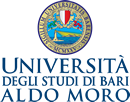Dentro la rete degli apprendenti. Un’applicazione della social network analysis ai MOOC linguistici
DOI:
https://doi.org/10.15162/1970-1861/1251Parole chiave:
italiano L2, LMOOC, social network analysis, centralitàAbstract
The year 2020 has been defined “the second year of the MOOC”. In the last year many changes happened in the world of e-learning, mainly due to the Covid-19 pandemic and the subsequent measures adopted on a global scale. Therefore, it is not surprising that we are attending to a rising interest in MOOCs (Massive Open Online Courses), even from a critical point of view. In this scenario, LMOOCs are constantly gaining popularity, so there is a need for new perspectives, that should allow to study the language teaching and learning in massive contexts, considering these contexts as complex systems.
This paper aims to analyse Introduction to Italian (Università per Stranieri di Siena), a linguistic MOOC hosted by FutureLearn, from a social network analysis point of view. Moreover, the LMOOC is investigated by means of a series of directed and weighted graphs, in which every user is a node that, when interacting with another user, builds an edge. The study investigates the communicative relationships represented by the graphs, calculating the betweenness centrality values and relating them with learners’ performances. Results give on one hand the chance to reflect upon the importance, for learners, to participate in the conversations that take place inside the LMOOC; on the other hand, data allow to consider the role of tutors as facilitators in building and maintaining a positive and effective learning environment.
Riferimenti bibliografici
Blumer H., 1969, Symbolic Interationism: Perspective and Method, Englewood Cliffs, N. J., Prentice Hall. Traduzione italiana: Interazionismo simbolico, Bologna, Il Mulino, 2008.
Brinton C. G., Chiang M., Jain S., Lam H., Liu Z., & Wong F. M. F., 2013, “Learning about Social Learning in MOOCs: From Statistical Analysis to Generative Model”, in IEEE Transactions on Learning Tehnologies, 7(4), pp. 346-359.
Cardona M., Luise M. C., 2018, Gli anziani e le lingue straniere. Educazione linguistica per la terza età, Lecce, PensaMultimedia.
Cassandro M., 2020, “Studio di caso: la percezione degli aspetti linguistici e il ruolo della riflessione metalinguistica nel MOOC di lingua italiana Introduction to Italian”, in Villarini A. (a cura di), pp. 79-102.
Granovetter M., 1973, “The Strength of Weak Ties”, in American Journal of Sociology, LXXVIII, 6, pp. 1360-1380.
Knowles M. S., 1975, Self-directed learning: A guide for learners and teachers, Englewood Cliffs, Prentice Hall/Cambridge.
La Grassa M., Villarini A., 2010, Apprendere le lingue straniere nella terza età, Perugia, Guerra Edizioni.
Lin N., 2001, Social Capital: A Theory of Social Structure and Action, Cambridge (MA), Cambridge University Press.
Pappano L., 2012, 2 novembre, The Year of the MOOC, URL: https://www.nytimes.com/2012/11/04/education/edlife/massive-open-online-courses-are-multiplying-at-a-rapid-pace.html [ultima visita: 28/04/2021].
Perifanou M., 2015, Language Massive Open Online Courses. Research report on the current state of Language Learning MOOCs worldwide: Exploration, Classification and Evaluation, URL: http://www.langmooc.com/wp-content/uploads/2016/03/REPORT-LangMOOCs-O2-_V3.pdf [ultimo accesso: 28/04/2021].
Perifanou M., Economides A., 2014, “MOOCs for language learning: an effort to explore and evaluate the first practices”, in Proceedings of the INTED2014 conference (Valencia, 8-12 marzo), pp. 3561-3570.
Pizzorno A., 1999, “Perché si paga il benzinaio. Note per una teoria del capitale sociale”, in Stato e Mercato, 3, pp. 373-394.
Read T., 2014, “The Architectonics of Language MOOCs”, in Martin Monje E., & Bárcena Madera E. (a cura di), Language MOOCs: Providing Learning, Transcending Boundaries, Berlino-Boston, De Gruyter, pp. 91-105.
Salvati L., 2020, “Language Massive Open Online Courses (LMOOC): uno sguardo alle tipologie e alle lingue dei corsi offerti”, in Villarini A. (a cura di), pp. 123-135.
Shah D., 2020a, 14 dicembre, The Second Year of the MOOC: A Review of MOOC Stats and Trends in 2020, URL: https://www.classcentral.com/report/the-second-year-of-the-mooc/ [ultima visita: 28/04/2021].
Shah D., 2020b, 2 maggio, How Different MOOC Providers are Responding to the Pandemic, URL: https://www.classcentral.com/report/mooc-providers-response-to-the-pandemic/ [ultima visita: 28/04/2021].
Siemens G., 2004, 12 dicembre, Connectivism: A Learning Theory for the Digital Age, URL: https://www.academia.edu/2857237/Connectivism_a_learning_theory_for_the_digital_age [ultima visita: 28/04/2021].
Sokolik M., 2014, “What Constitutes an Effective Language MOOC?”, in Martin-Monje E., Bárcena Madera E. (a cura di), Language MOOCs: Providing Learning, Transcending Boundaries, Berlino-Boston, De Gruyter, pp. 16-32.
Teixeira A. M., Mota J., 2014, “A Proposal for the Methodological Design of Collaborative Language MOOCs”, in Martin-Monje E., Bárcena Madera E. (a cura di), Language MOOCs: Providing Learning, Transcending Boundaries, Berlino-Boston, De Gruyter, pp. 33-47.
Tomkin J. H., Charlevoix D., 2014, “Do professors matter? Using an a/b test to evaluate the impact of instructor involvement on MOOC student outcomes”, in L@S ’14: Proceedings of the first ACM conference on Learning @ scale conference, pp. 71-78, DOI: https://doi.org/10.1145/2556325.2566245.
Troncarelli D., 2020, “Progettare un MOOC per l’insegnamento di una lingua straniera”, in Villarini A. (a cura di), pp. 61-78.
Villarini A. (a cura di), 2020, Insegnare l’italiano con i MOOC, Pisa, Pacini Editore.
Weinberger D., 2011, Too Big to Know: Rethinking Knowledge Now That the Facts Aren’t the Facts, Experts Are Everywhere, and the Smartest Person in the Room is the Room, New York, Basic Books, trad. it. N. Mataldi, La stanza intelligente. La conoscenza come proprietà della rete, Torino, Codice edizioni, 2012.





